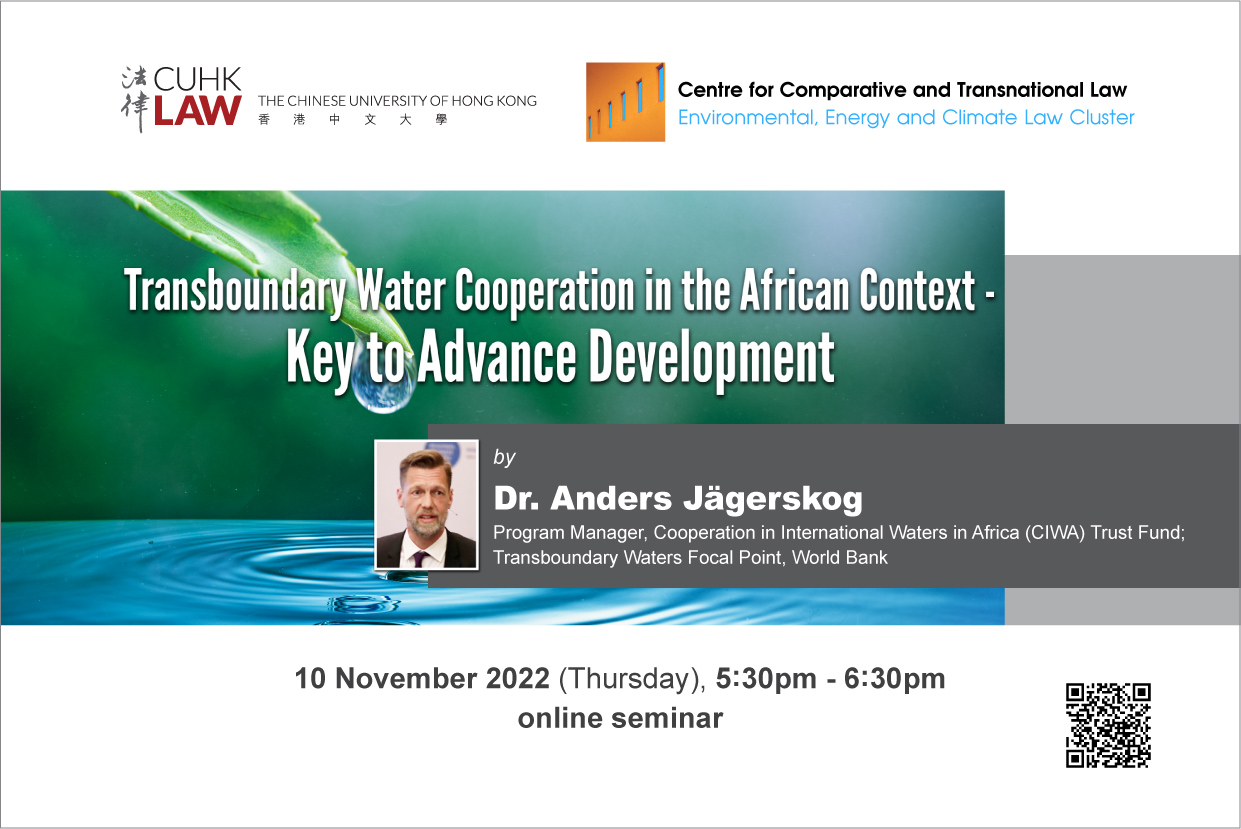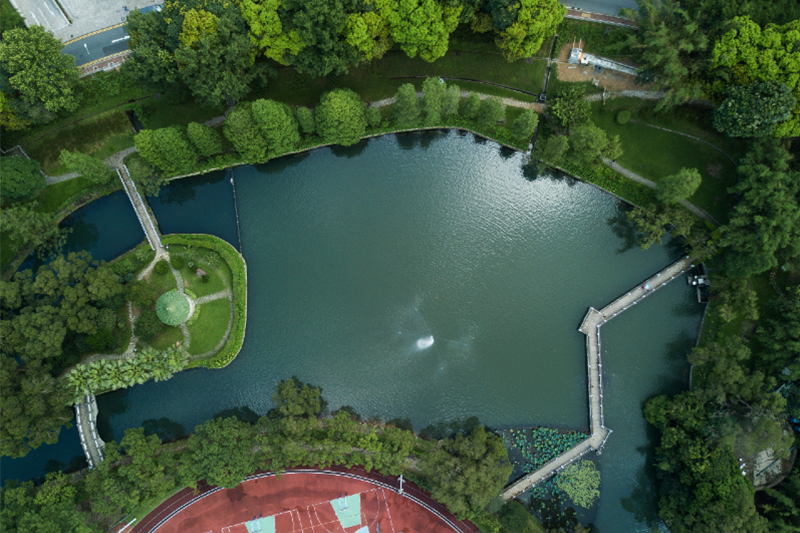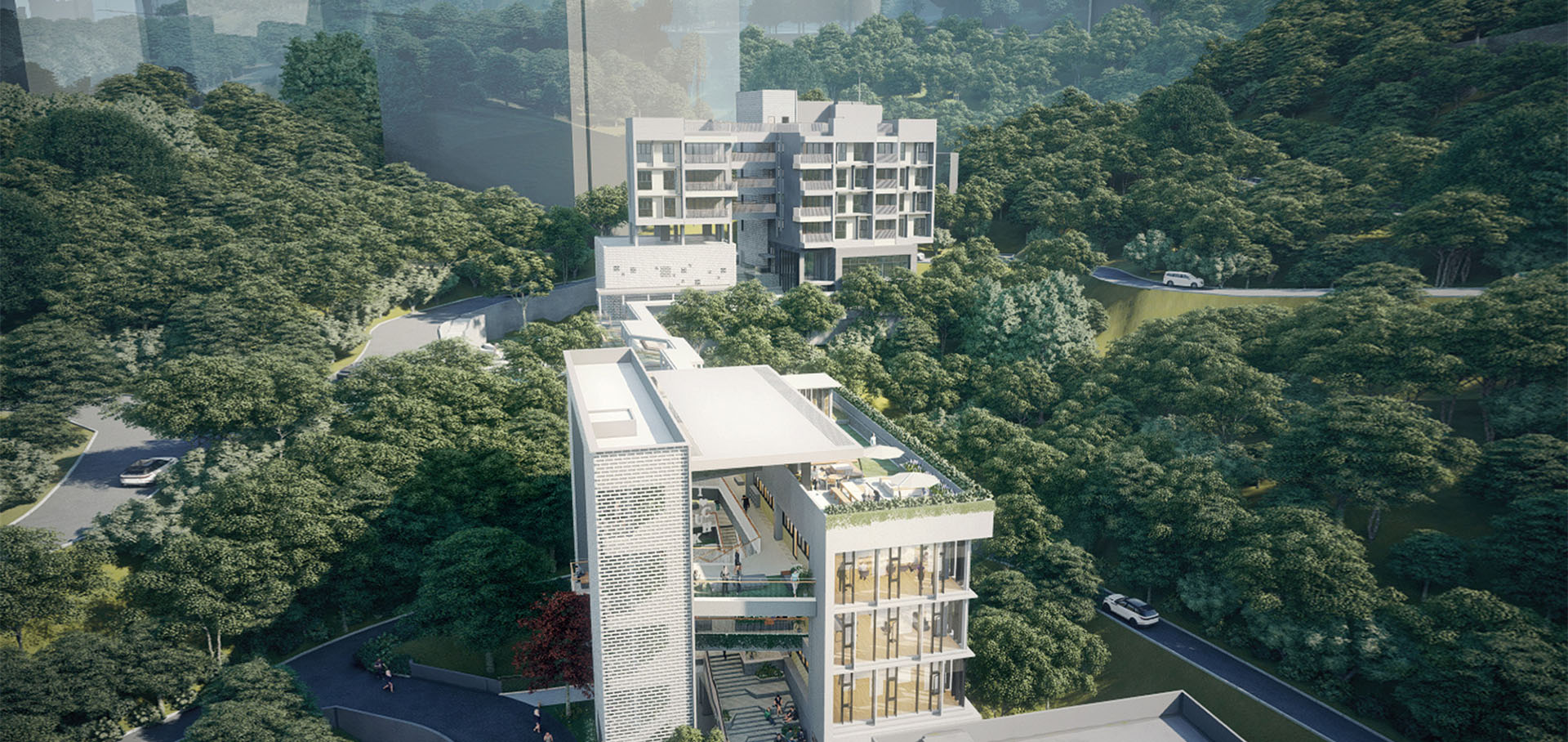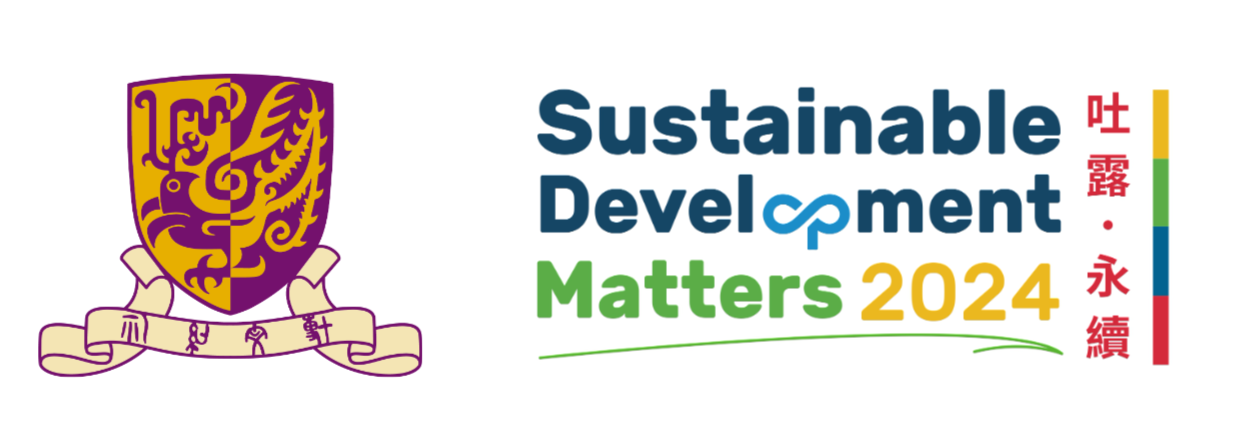SDG 6| Clean Water and Sanitation
Ensure availability and sustainable management of water and sanitation for all
Curriculum
Policies
CUHK practises sustainable procurement to ensure that its products and services are as sustainable as possible. The University adheres to Sustainable Procurement Guidelines, which establish specifications for new construction and the refurbishment of existing buildings which require the installation of rainwater collection systems and water-saving fixtures such as dual flush toilets, tap aerators, and water taps with a water-saving performance rated equivalent to Grade 1 (as defined by the Water Efficiency Labels introduced by the Water Supplies Department).
Teaching
Water scarcity poses a serious threat to the wellbeing of mankind. It affects 1 in 3 people in Africa, and is exacerbated by population growth, urbanization, and climate change. The Faculty of Law and Centre for Comparative and Transnational Law invited a representative of the Cooperation in International Waters in Africa (CIWA) Trust Fund to organize the CCTL Environmental, Energy and Climate Law Cluster Seminar – ‘Transboundary Water Cooperation in the African Context – Key to Advance Development’ in November 2022. The speaker described CIWA’s experience in addressing transboundary water management with examples from various parts of the world. The presentation emphasized the importance of improved water resources management, highlighting its potential for enhancing food security, reducing vulnerability to climate change, improving livelihoods, increasing energy generation and spurring economic growth.

Water usage and care
CUHK is the largest, greenest and most sustainably designed university in Hong Kong. Over 60% of its campus is wooded, and is a haven for many varieties of flora and fauna. At the same time, irrigation is a significant challenge for the university. The completion of a water treatment plant in 2012 enabled Weiyuan Lake (also known as Lake Ad Excellentiam) to supply the water needs of the university beyond irrigation. The lake can supply up to 1,100 cubic metres of water daily (after treatment) for campus irrigation, cleaning and cooling systems. Weiyuan Lake is now not only a scenic campus attraction but also part of the University’s life support system.

The recently-completed Chung Chi Student Development Complex is a pioneering redevelopment project that aims to provide new student activity areas and enhance students’ sense of belonging to the College. The building received a provisional platinum rating from HKGBC Beam Plus for its green and innovative features. With water-efficient fitments, dual flush water closets and low-flow urinals, the building saves more than 37% of its potable water and reduces effluent discharge by 51%.

Provision of free drinking water
Students, staff and caterers at CUHK have been striving to build a green and sustainable campus by discontinuing plastic disposables. In 2021, sixteen more Go Green Water Stations were put in place. The University now has more than 90 water stations on its campus that offer free and convenient access to clean drinking water. With the assistance of the ‘CUHK Mobile’ app and online map, students can easily locate a nearby water dispenser. This initiative promotes a ‘Bring Your Own’ culture and fosters our aspiration to become a plastic-free campus, effectively reducing waste at its source.
PREVIOUS
Gender Equality
SDG 5
NEXT
Affordable and Clean Energy
SDG 7
